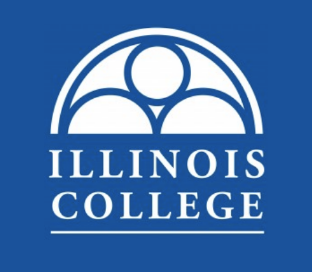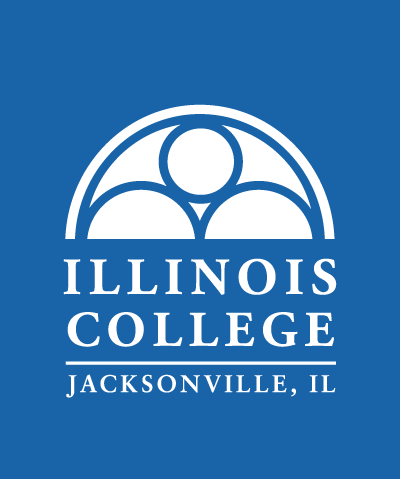Research symposium highlights work of IC students and faculty
About 30 Illinois College students who participated in student-faculty research through the College over the summer will share their findings on Monday, November 5, at 11:00 a.m. to noon, in the concourse of Bruner Fitness and Recreation Center.
IC’s Summer Research Symposium will feature informal poster presentations covering a wide range of subjects across disciplines from early childhood development to the DNA of bats. Students have the ability to interact with attendees, answer questions and explain their work. IC students who attend will learn about research opportunities available at the College throughout the year and how to fund research with on-campus sources.
Funding for most of the student-faculty research that will be featured was provided by the Stephen M. Tillery ’72 Research Fund for Outstanding Students and the Warren ’49 and Marcia Billhartz Experiential Learning Fund.
The symposium is free and open to the public. For additional information on the Summer Research Symposium, contact Dr. Almut Spalding, director of global programming and professor of world languages and cultures in German, at 217.245.3874 or aspaldi@ic.edu.
A sampling of a few of the 19 student-faculty research projects that will be presented are highlighted below.
Comparing mtDNA Control Regions and Microsatellite Loci Between Populations of Evening Bats (Nycticeius humeralis) in Florida and Illinois, Kalli Kaney ’20 and J.D. Roesch ’19
Faculty supervisor: Bryan Arnold, Assistant Professor of Biology
Kalli Kaney ’20 and J.D. Roesch ’19 conducted research with Dr. Bryan Arnold, assistant professor of biology, analyzing various populations of bats from throughout Illinois and the Florida Panther National Wildlife Refuge. The purpose of their study was to compare mitochondrial DNA between the evening bats from Florida and Illinois to determine how related the two populations are despite a large geographic separation.
Roesch, who worked in the Florida Panther National Wildlife Refuge says the experience gave him firsthand knowledge on how wildlife biologists conduct research on different animals.
“While at the refuge I got to experience a whole new ecosystem. I was able to see many different animals including bears, alligators, snakes and bats,” said Roesch. “I also got to see how a controlled burn was performed on a section of the refuge in order to improve the long-term habitat for the animals living there.”
Roesch, who also completed an internship with the Illinois Conservation Police over the summer, said the experience helped him develop professional skills that will help him as he applies to graduate school this year. He hopes to pursue a future career as a wildlife biologist.
Kaney said she also gained experience that will set her apart from others as she looks toward graduate school. She gained hands-on lab skills like how to extract DNA from a sample and enjoyed being a part of a team.
“I enjoyed forming a relationship with Dr. Arnold and collaborating with the other students doing research,” she said. “I was able to expand my knowledge in different areas of biology."
Fear Avoidance and Approach as Mediators Between Effortful Control and Child Problem Behaviors, Sarah Christian ’19, Biology; Samantha McFarland ’19, Psychology
Faculty supervisors: Elizabeth Rellinger Zettler, Professor of Psychology; Caitlin Vasquez-O’Brien, Assistant Professor of Psychology
Sarah Christian ’19 and Samantha McFarland ’19 worked with local families to conduct their research, part of the ongoing Developing an Understanding of Childhood Knowledge (D.U.C.K.) study.
The rising seniors collaborated on the study with Dr. Elizabeth Rellinger Zettler, professor of psychology and Dr. Caitlin Vasquez-O'Brien, assistant professor of psychology. Their work explored the behavior of parents and its effects on the behavior of children and their abilities to regulate fear and emotional responses. Several Jacksonville families participated by answering questions and being observed in a laboratory.
McFarland said one lesson she learned through the experience was that research requires more time, planning and brainstorming of ideas than she expected.
Christian also said the experience was eye-opening. She learned how to conduct a research study, the ethics behind the process, how to work with a diverse team of people, the ability to analyze data and to write and present findings more clearly. She believes the experience will help her as she pursues a degree in public health.
“With interviews with children and parents, it is important to be able to know how to interact with them and to ask them questions about their past history -- to build trust and to abide by the confidentiality when working with human subjects,” said McFarland. “I think this can also be applied to public health where I will work to educate people with different health concerns.”
Both students plan on pursuing graduate school and believe the skills they learned through their participation in student-faculty research will significantly help them to be successful.
Forensic Anthropology: Determining Stature and Identifying Skeletal Pathology in a Homo sapiens Subject, Megan Price ’21, Biochemistry
Determining the Age at Death of Homo sapiens Case IC 0002 Using Transition Analysis, Savanna Brady ’19, Biology
Faculty supervisor: Miranda Karban, Assistant Professor of Biology
Anyone who has taken a biology class at Illinois College has likely seen the human skeleton long housed in Parker Science Building, but until recently no one knew any details about the skeleton or where it came from. Uncovering details about this mysterious skeleton was the goal of various summer research projects.
Megan Price ’21 is one of the students who worked with Dr. Miranda Karban, assistant professor of biology, to get a better understanding of the skeleton. Price applied forensic anthropology techniques to create a complete biological profile of the skeletal remain, also known as Case #0002. She used findings to determine the pathological conditions and stature of the individual.
Now a sophomore, Price said that the experience of completing student-faculty research after her first year taught her many valuable skills used to determine sex, age, ancestry and stature of a skeleton. She also learned how to write a forensic biological profile on an individual. Price hopes her experience shows other students that it’s never too early to get involved in research at Illinois College.
“This is a great experience to add to my resume and gives me hands-on experience that will prepare me for medical school,” said Price.
Savanna Brady ’19 also collaborated with Dr. Karban to explore different methods that are used to determine sex, ancestry, age at death, stature and trauma on human skeletal remains.
“I learned that forensics is a field that I am very interested in, and I think I will be changing my career path because of it,” she said.
Brady gained experience in collecting special data and using new methods, tools and programs to complete her research. She said the ability to present her work to others is another area that she improved in and she looks forward to sharing her work and speaking about the many ways that forensics can be applied.
“My favorite takeaway from this experience was he fact that I got to work hands on with skeletal remains,” she said. “The fact that this used to be a living person with their own story was very cool.”


